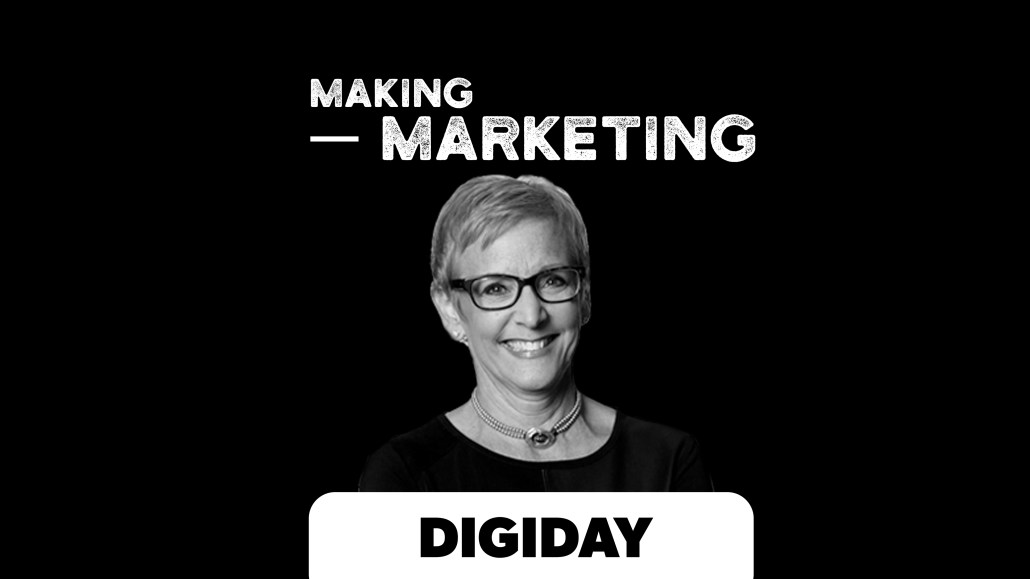Secure your place at the Digiday Media Buying Summit in Nashville, March 2-4
iCrossing’s Anne Bologna: Brands will take more marketing in-house in 2019

Subscribe: iTunes | Google Play | Stitcher | RSS | Anchor
Big mergers resulting in new entities like Wunderman Thompson and VMLY&R have set the tone for 2019: It’s going to be the year of consolidation.
Anne Bologna, chief strategy officer at Hearst-owned agency iCrossing, says there is too much continued pressure on agencies — a talent war with the duopoly and continuing competition has made agencies lose their confidence, and forget their craft.
“Agencies have lost a little bit of confidence in the last 20 years,” said Bologna on the Making Marketing podcast. “They have to have a certain level of self-respect about the value they bring and then actually bring it. We need to get back to the craft of consumer engagement. Today, it’s not all going to be found in the same building. No agency will be a lead agency. There’s a lot of consolidation and that will continue but the value that the agency brings is to be a business advisor and to come with solutions.”
Bologna discusses why consolidation is necessary, how agencies are trying to be everything for clients and more on this episode. Edited highlights below:
Marketing matters more than ever.
“I have never seen an industry that has overly complicated itself as much as advertising. The other end of all of this stuff is a human being. [Today] how many times do you hear someone say “advertising”? Not that much. In the next year and beyond, I look forward to the “craft of engagement”. We forget that the two things that drive growth are marketing and innovation. Some digital-first or digital-only brands go online because they need it to grow. Or the offline brands go online because they need that for growth. The excellence and innovation in marketing can also be innovation. Glossier as a [product] is fine. But the packaging and the experience [make people] love the brand. That’s a cool brand. It’s the totality of the go-to-market experience.”
The talent war is on.
“We’re in a talent war. Amazon is coming to New York and the duopoly is still a magnet for talent. That talent war is amplified by the millennial mindset. They think differently. You’re going to see consolidation because it’s supply and demand and the need to deliver a return on investment. You’re also going to see the best talent will start their own agency of their own kind. MightyHive is an agency born out of ad-tech but it’s really a solution. For agencies, think less about what makes you different but what problems do you solve well.”
The in-house agency trend is a reality.
“The reason why in-housing is happening is because all clients are acting like retailers. They have to have access to their data and they have to do real-time marketing. The seasonality has disappeared. Brands going in-house is beyond a concern to me, it’s the reality. It’s going to increase. But there will be a pendulum swing. They will take certain things in-house like creative or production. Data and analytics [will come back to the agency]. Creative might come back too. Because an in-house agency will edit themselves depending on what the CEO likes but a great agency will push for the solution that is right because they’ve done the work.”
More in Marketing

WTF are tokens?
When someone sends a prompt or receives a response, the system breaks language into small segments. These fragments are tokens.

AI is changing how retailers select tech partners
The quick rise of artificial intelligence-powered tools has reshaped retailers’ process of selecting technology partners for anything from marketing to supply chain to merchandising.

YouTube’s upmarket TV push still runs on mid-funnel DNA
YouTube is balancing wanting to be premium TV, the short-form powerhouse and a creator economy engine all at once.








